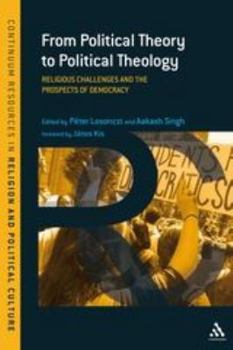From Political Theory to Political Theology: Religious Challenges and the Prospects of Democracy
Select Format
Select Condition 
Book Overview
During the last two decades we have witnessed what Jos Casanova has characterised as "religion going public". This has not been a trend exclusive to traditionally religious nations. Rather, it has been visible in as diverse environments as that of the construction of the new Russian political identity or in the "post-9/11" political discourses of the USA.
Surprisingly, important religious manifestations also influenced the political discourses in Britain and, more recently, in France. Partly as a consequence of these phenomena an intensive debate is now evolving about the compatibility of the neutrality of liberal democracy in relation to religiously motivated opinions in public discourses, and the conditions under which such religiously driven contributions could viably "go public". This book offers a collection of essays on Religion and Democracy which critically discusses the most important questions that characterize these debates at the points of their intersection within political theory, political theology and the philosophy of religion, and considers both the challenges and the prospects of this new era which, following Habermas, one may call post-secular.Format:Paperback
Language:English
ISBN:1441187448
ISBN13:9781441187444
Release Date:March 2010
Publisher:Continuum
Length:232 Pages
Weight:0.80 lbs.
Dimensions:0.6" x 6.0" x 9.1"
Customer Reviews
0 rating





